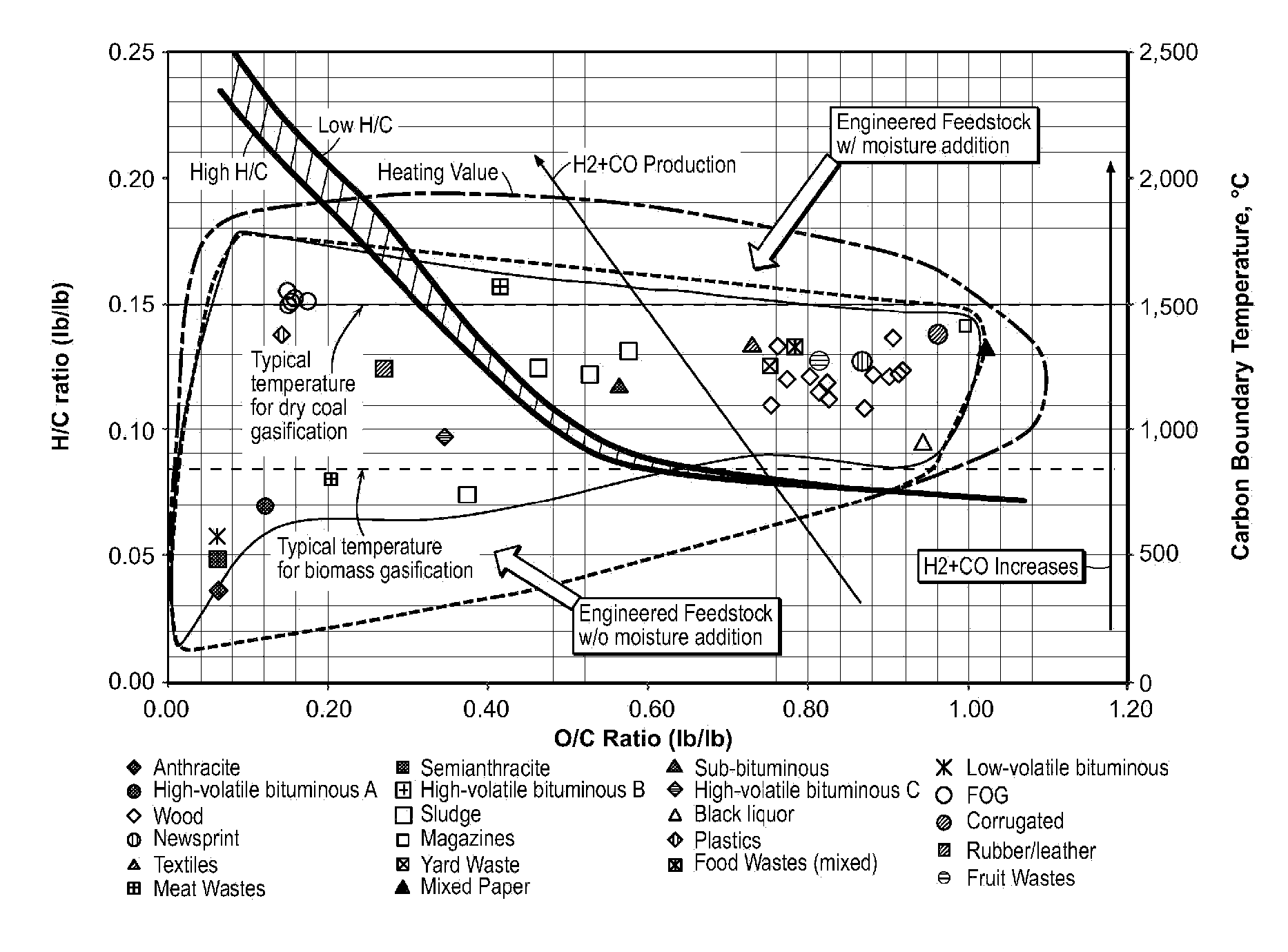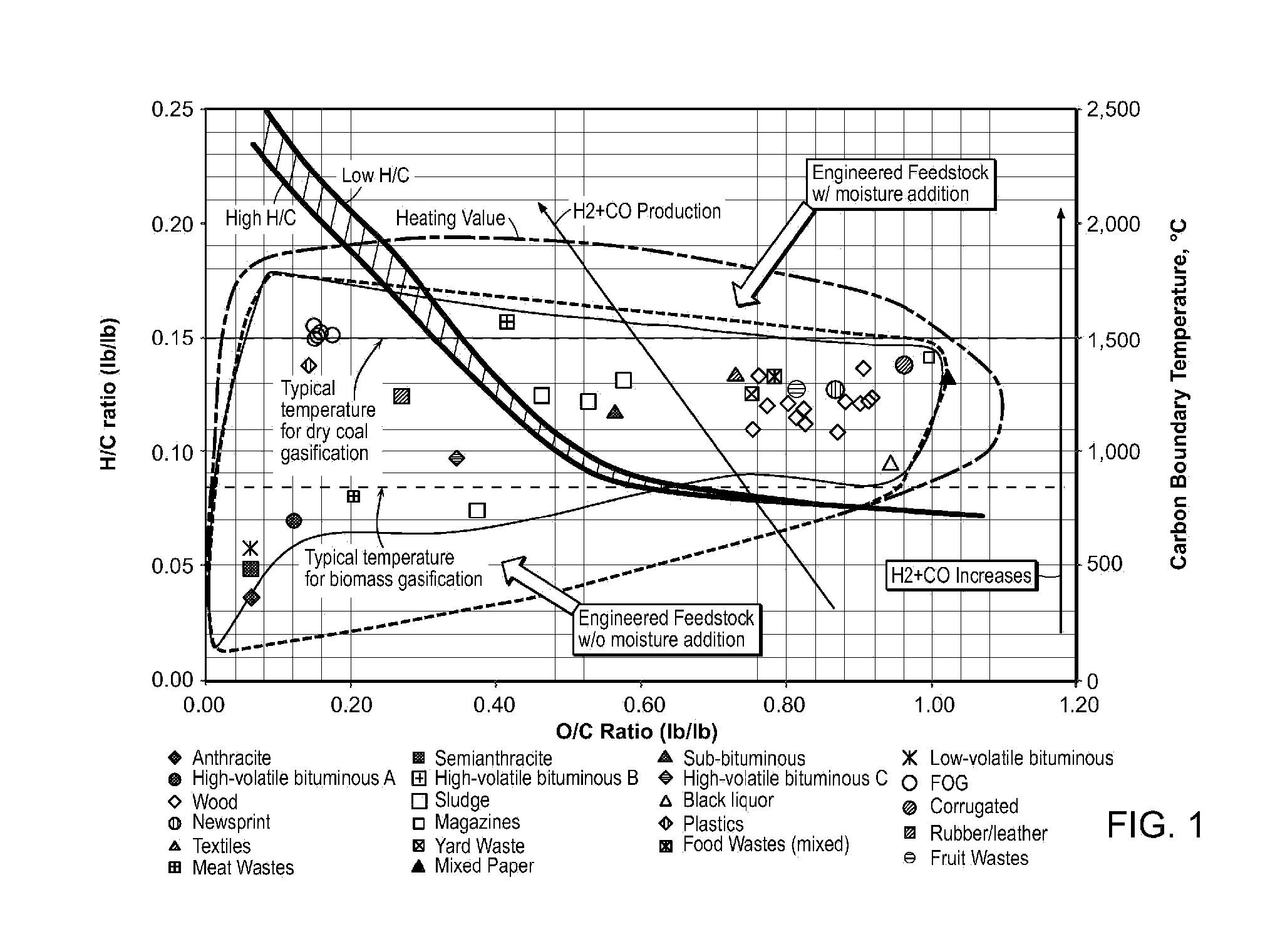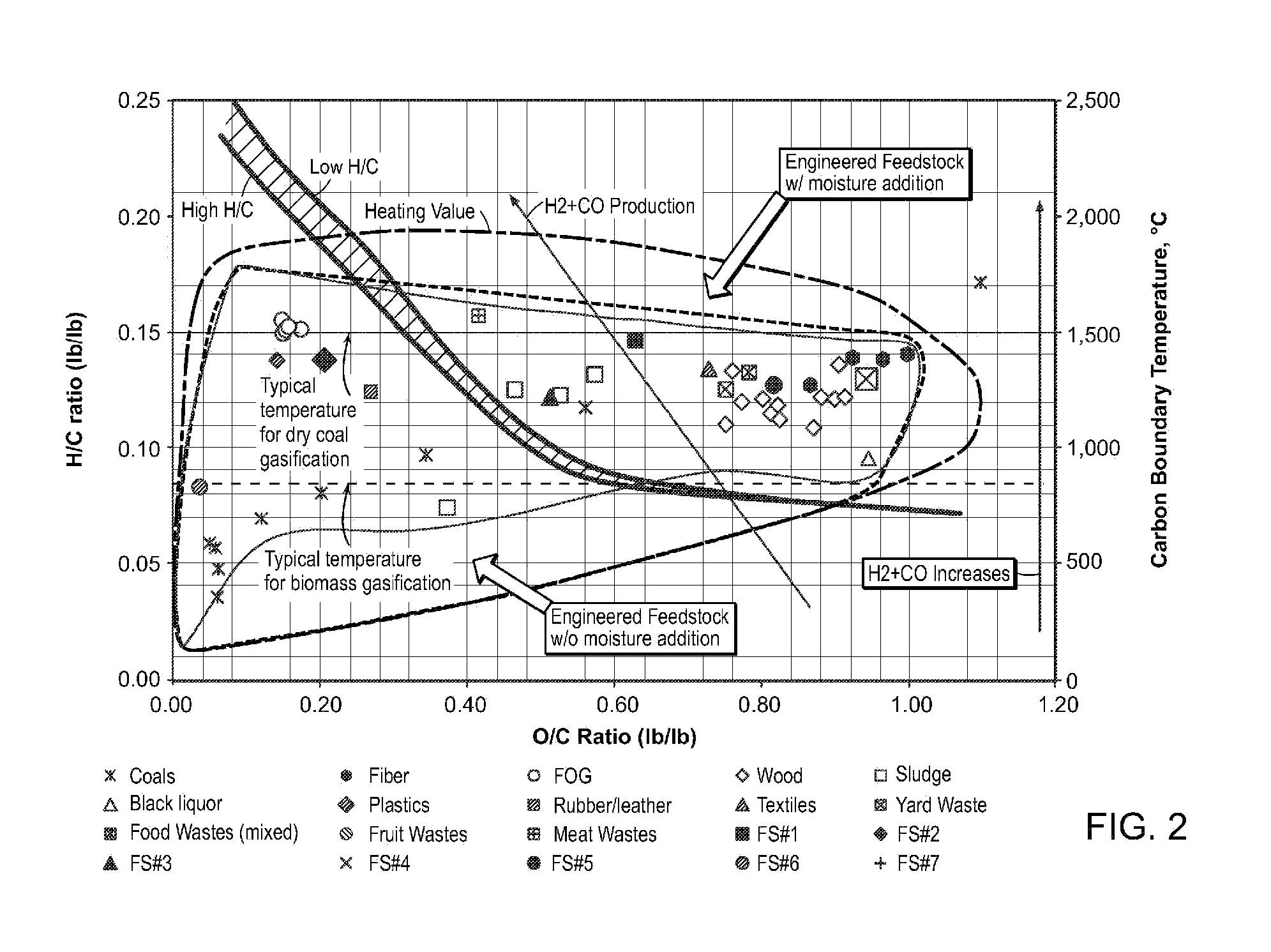Engineered fuel feed stock
a technology of engineered fuel and feed stock, which is applied in the field of alternative fuels, can solve the problems of increasing the cost of transportation, and increasing the cost of moving engineered fuel feed stock for energy and petrochemical production, and causing significant amounts of pollutants in the gas produced
- Summary
- Abstract
- Description
- Claims
- Application Information
AI Technical Summary
Benefits of technology
Problems solved by technology
Method used
Image
Examples
example 1
[0245]
Test MethodASAIRDRYASTM1 #ParameterRECEIVEDDRIEDBASISD 3302,Total Moisture,21.04——5142% wtD 5142Residual Moisture,—7.04—% wtD 5142Ash, % wt12.9115.2016.35D 5142Volatile, % wt58.8169.2474.49CalculationFixed Carbon, % wt7.248.529.16Total100.00100.00100.00D 4239Sulfur %0.180.210.23D 5865HHVBtu / lb (Gross)108901282113792D 3176Hydrogen, % wt4.244.995.37D 3176Carbon, % wt33.8439.8442.86D 3176Nitrogen, % wt0.240.290.31Calculation% Oxygen by27.5532.4234.88difference1American Society for Testing and Materials
example 2
[0246]
Test MethodASAIRDRYASTM1 #ParameterRECEIVEDDRIEDBASISD 3302,Total Moisture,13.26——5142% wtD 5142Residual Moisture,—6.09—% wtD 5142Ash, % wt14.3915.5816.59D 5142Volatile, % wt63.3368.5773.02CalculationFixed Carbon, % wt9.029.7610.40Total100.00100.00100.00D 4239Sulfur %0.200.220.23D 5865HHV Btu / lb (Gross)111651208812872D 3176Hydrogen, % wt5.556.016.40D 3176Carbon, % wt41.6845.1248.05D 3176Nitrogen, % wt0.210.230.24Calculation% Oxygen by24.7126.7528.49difference1American Society for Testing and Materials
example 3
[0247]
Test MethodASAIRDRYASTM1 #ParameterRECEIVEDDRIEDBASISD 3302, 5142Total Moisture, % wt15.06——D 5142Residual Moisture,—4.16—% wtD 5142Ash, % wt11.6713.1713.74D 5142Volatile, % wt64.6072.8976.05CalculationFixed Carbon, % wt8.679.7810.21Total100.00100.00100.00D 4239Sulfur %0.090.110.11D 5865HHV Btu / lb (Gross)618869827285D 3176Hydrogen, % wt4.935.565.80D 3176Carbon, % wt34.9039.3841.09D 3176Nitrogen, % wt0.070.080.08Calculation% Oxygen by33.2837.5539.18differenceD4208Chlorine, % wt0.750.840.881American Society for Testing and Materials
PUM
| Property | Measurement | Unit |
|---|---|---|
| temperatures | aaaaa | aaaaa |
| temperature | aaaaa | aaaaa |
| temperature | aaaaa | aaaaa |
Abstract
Description
Claims
Application Information
 Login to View More
Login to View More - R&D
- Intellectual Property
- Life Sciences
- Materials
- Tech Scout
- Unparalleled Data Quality
- Higher Quality Content
- 60% Fewer Hallucinations
Browse by: Latest US Patents, China's latest patents, Technical Efficacy Thesaurus, Application Domain, Technology Topic, Popular Technical Reports.
© 2025 PatSnap. All rights reserved.Legal|Privacy policy|Modern Slavery Act Transparency Statement|Sitemap|About US| Contact US: help@patsnap.com



